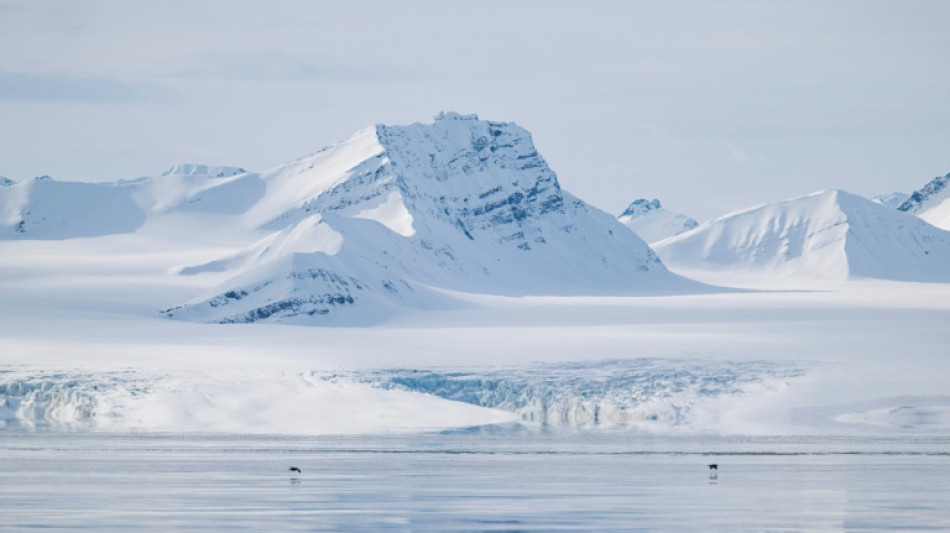
-
 France set to face New Zealand with second-string squad
France set to face New Zealand with second-string squad
-
Eyeing China, EU moves to ban 'high-risk' foreign suppliers from telecoms networks

-
 Struggling Suryakumar will not adapt style to find form before T20 World Cup
Struggling Suryakumar will not adapt style to find form before T20 World Cup
-
World stocks sink, gold hits high on escalating trade war fears
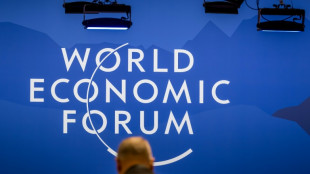
-
 Easier said than done for US to apply tariffs on single EU states
Easier said than done for US to apply tariffs on single EU states
-
Canada military models response to US invasion: report

-
 Salah returns to Liverpool training after AFCON
Salah returns to Liverpool training after AFCON
-
Milan menswear shows add bling with brooches

-
 Scotland recall Gray, Cherry for Six Nations
Scotland recall Gray, Cherry for Six Nations
-
Scheib storms to Kronplatz giant slalom victory as Brignone impresses in World Cup return

-
 Chagos Islands: international dispute and human drama
Chagos Islands: international dispute and human drama
-
Thousands of farmers protest EU, Mercosur trade deal ahead of vote

-
 Men's Fashion Week kicks off in Paris with tributes for Valentino
Men's Fashion Week kicks off in Paris with tributes for Valentino
-
Lake named as captain as Wales unveil Six Nations squad

-
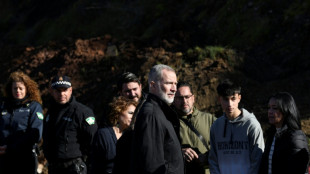 Royals visit deadly train crash site as Spain mourns
Royals visit deadly train crash site as Spain mourns
-
Police, pro-Kurd protesters clash at Turkey border with Syria
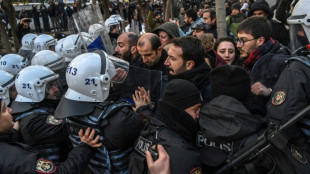
-
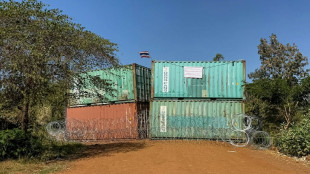 Thai forces razed Cambodian homes on border: rights group
Thai forces razed Cambodian homes on border: rights group
-
Jellyfish-inspired Osaka battles into Australian Open round two

-
 Valentino taught us to respect women, says partner
Valentino taught us to respect women, says partner
-
Australia stiffens hate crime, gun laws after Bondi attack
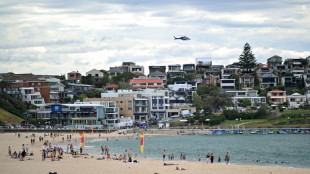
-
 Mercedes chief designer Owen to leave F1 team
Mercedes chief designer Owen to leave F1 team
-
Trump unloads on allies as Davos showdown looms

-
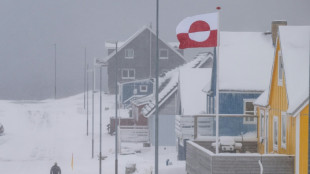 Moscow revels in Trump's Greenland plans but keeps concerns quiet
Moscow revels in Trump's Greenland plans but keeps concerns quiet
-
Global tourism hit new record level in 2025: UN
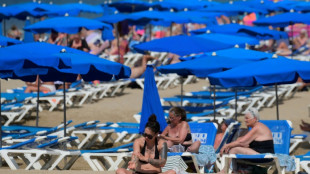
-
 Senegal poised to party with parade honouring AFCON champs
Senegal poised to party with parade honouring AFCON champs
-
Osaka emerges for Melbourne opener under hat, veil and parasol

-
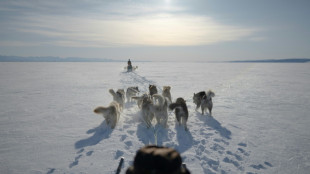 Dogsled diplomacy in Greenland proves elusive for US
Dogsled diplomacy in Greenland proves elusive for US
-
Almost half of Kyiv without heat, power, after Russian attack
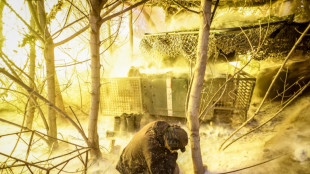
-
 EU vows 'unflinching' response to Trump's Greenland gambit
EU vows 'unflinching' response to Trump's Greenland gambit
-
Osaka steals show at Australian Open as Sinner strolls through

-
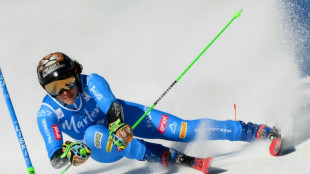 Brignone impresses in first run of Kronplatz giant slalom in World Cup comeback
Brignone impresses in first run of Kronplatz giant slalom in World Cup comeback
-
Osaka emerges for Melbourne opener under white hat and umbrella

-
 Malawi suffers as US aid cuts cripple healthcare
Malawi suffers as US aid cuts cripple healthcare
-
Bessent says Europe dumping US debt over Greenland would 'defy logic'

-
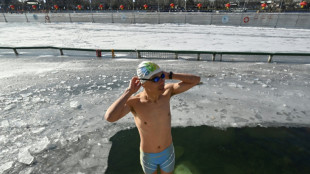 Freeze, please! China's winter swimmers take the plunge
Freeze, please! China's winter swimmers take the plunge
-
Talks between Damascus, Kurdish-led forces 'collapse': Kurdish official to AFP
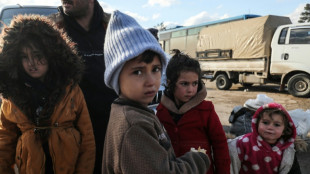
-
 In-form Bencic makes light work of Boulter at Australian Open
In-form Bencic makes light work of Boulter at Australian Open
-
Spain mourns as train disaster toll rises to 41

-
 Sinner into Melbourne round two as opponent retires hurt
Sinner into Melbourne round two as opponent retires hurt
-
Israel begins demolitions at UNRWA headquarters in east Jerusalem
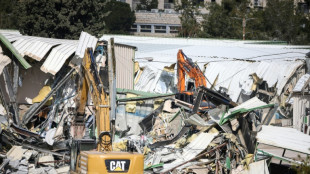
-
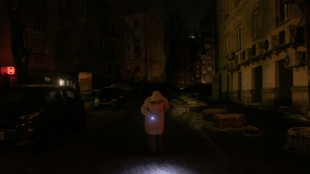 Almost half of Kyiv without heat, power, after Russian attack: govt
Almost half of Kyiv without heat, power, after Russian attack: govt
-
Veteran Monfils exits to standing ovation on Australian Open farewell

-
 Precision-serving former finalist Rybakina powers on in Melbourne
Precision-serving former finalist Rybakina powers on in Melbourne
-
South Korea's women footballers threaten boycott over conditions

-
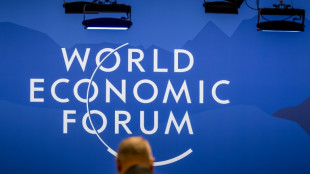 Equities sink, gold and silver hit records as Greenland fears mount
Equities sink, gold and silver hit records as Greenland fears mount
-
Australian lawmakers back stricter gun, hate crime laws
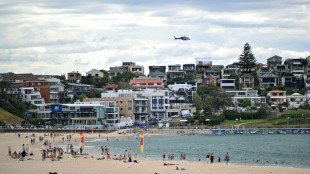
-
 EU wants to keep Chinese suppliers out of critical infrastructure
EU wants to keep Chinese suppliers out of critical infrastructure
-
AI reshaping the battle over the narrative of Maduro's US capture

-
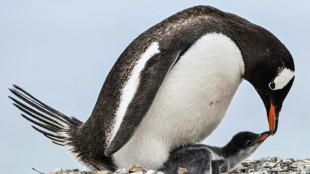 Penguins bring forward breeding season as Antarctica warms: study
Penguins bring forward breeding season as Antarctica warms: study
-
Vietnam leader pledges graft fight as he eyes China-style powers

| RIO | -0.14% | 85.01 | $ | |
| CMSC | -0.17% | 23.44 | $ | |
| SCS | 0.12% | 16.14 | $ | |
| BTI | -2.5% | 56.8 | $ | |
| NGG | -0.63% | 80.38 | $ | |
| GSK | -0.34% | 48.055 | $ | |
| RBGPF | -1.87% | 82.5 | $ | |
| BCC | -2.13% | 83.724 | $ | |
| BCE | -0.19% | 24.095 | $ | |
| RYCEF | 0.06% | 17.06 | $ | |
| RELX | -2.51% | 40.61 | $ | |
| CMSD | -0.78% | 23.736 | $ | |
| BP | 0.18% | 35.445 | $ | |
| JRI | -0.22% | 13.67 | $ | |
| AZN | -4.41% | 90.439 | $ | |
| VOD | 0.26% | 13.505 | $ |

Scientists save ancient Arctic ice in race to preserve climate history
Scientists have succeeded in saving samples of ancient Arctic ice for analysis in a race against time before it melts away due to climate change, they said this week.
The eight French, Italian and Norwegian researchers camped in Norway's Svalbard archipelago in March and April, braving storms and mishaps to preserve crucial ice records that can be used to analyse what the Earth's climate looked like in the past and chart the devastating impact human activity is having on it now.
The Ice Memory Foundation team extracted three huge tubes of glacier ice on Svalbard. They, like others collected by the 20-year project launched in 2015, will be preserved for future scientific analysis at a research station in Antarctica.
Analysing chemicals in such deep "ice cores" provides valuable data about centuries of past climatic and environmental conditions, long after the original glacier has disappeared.
But it is a race to preserve this "ice memory". Experts warn that as global temperatures rise, meltwater is leaking into ancient ice and risks destroying the geochemical records it contains before scientists can collect the data.
When the Ice Memory team set up camp in March on Holtedahlfonna, one of the highest and most northerly glaciers in the Arctic, the first hitch was the weather.
Instead of the expected -25 degrees Celsius (-13 degrees Farenheit), fierce winds forced the temperature down to -40C, delaying drilling for several days.
Then, once they had bored a 24.5-metre (80-foot) hole in the ice, water from the melting glacier rushed into it.
Even though radar data collected since 2005 showed there was some meltwater inside the Holtedalhfonna glacier, "we did not expect to find such an extended, abundant and saturated aquifer in the selected drilling site, at the end of winter", explained Jean-Charles Gallet, snow physicist at the Norwegian Polar Institute and expedition coordinator.
"Glaciers are not only dramatically losing their mass but also their cold content."
- 'Dramatic climate change' -
Aquifers are underground reservoirs of freshwater or saltwater that permeate the ice crystals in glaciers and weaken them.
"Seeing all that water in the glacier gave us the clearest evidence yet of the effects that dramatic climate change is having in the Arctic," said Daniele Zannoni, a member of the team from the Ca’ Foscari University in Venice.
Human-caused carbon emissions have warmed the planet by 1.15 degrees Celsius since industrialisation, powered by fossil fuels, began the 19th century. Studies indicate that the Arctic is warming between two and four times faster than the global average.
On Friday, the United Nations said the world's 40-odd "reference glaciers" -- those for which long-term observations exist -- are more than 26 metres thinner now on average than in 1970.
The pressure of the meltwater rushing into the Holtedalhfonna drill hole damaged two of the team's driller motors, forcing them to relocate to the summit of the Dovrebreen glacier, 13 metres higher up.
When drilling resumed, the researchers succeeded in extracting three ice cores 50-75 metres long. The strata and air bubbles trapped in these precious translucent cylinders, just a dozen centimetres in diameter, could contain up to 300 years of climate history.
- Race against time -
The race is on for glaciologists, who "are seeing their primary material disappear forever from the surface of the planet", Jerome Chappellaz, president of the Ice Memory foundation, told AFP on April 3.
"It is our responsibility as glaciologists of this generation to make sure a bit of it is preserved."
When the researchers had three ice samples, the temperature in Svalbard shot up to -3C, turning part of the route back to their base at the Ny-Alesund research station into a treacherous torrent of water.
Two of the ice cores made it base but the third is still stuck at the drilling site, waiting for more clement weather to be shipped out.
In the meantime, Ice Memory has put out an international plea to other researchers.
"We do need (them)... rapidly to collect samples from endangered glaciers or to save... already collected ice cores, to preserve these very precious data in the Ice Memory sanctuary in Antarctica," said paleoclimatologist and Ice Memory vice-chair Carlo Barbante.
"If we lose archives like this, we will lose the memory of human alteration of the climate," stressed Ice Memory director Anne-Catherine Ohlmann.
"We will also lose crucial information for future scientists and policymakers, who will have to make decisions for the well-being of society.”
C.Kovalenko--BTB



